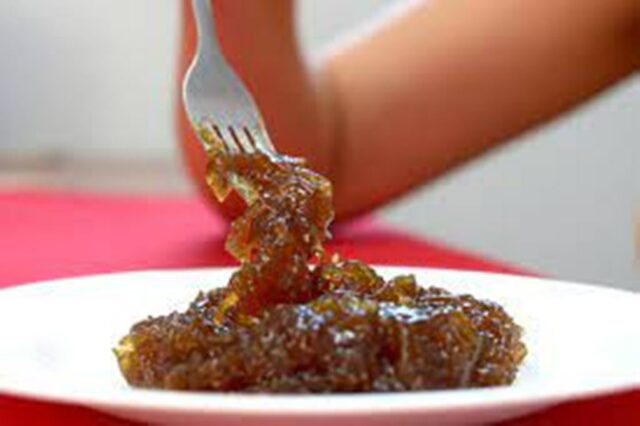For Costa Ricans, food has a special value during Easter. At this time, families enjoy honey, pickles, minced meat, donuts, cakes and other foods that are prepared in advance especially for these days, using recipes that have been inherited for generations.
Today, these delicious meals give us a sample of how our grandmothers made an intelligent use of the available food, using conservation techniques that allow avoiding the loss and waste of food during this time, which for the Catholic population, is dedicated to reflextion and prayer activities.
Dr. Patricia Sedó Masis, researcher at the School of Nutrition of the UCR, in the article “Flavors and aromas of the Costa Rican table in Holy Week”, highlights the traditional foods with extreme flavors, the use of foods that are available in the season and the preparations that allow to extend the useful life of the food.
Millennial techniques
According to Sedó, the preparation of certain dishes and drinks has lasted over time, without much variation in ingredients or culinary techniques. The researcher notes that in the absence of advanced preservation equipment and techniques in the past, the most practical thing was the previous preparation of preserves in the form of honey and pickled preserves.

For her part, Dr. Ana Mercedes Pérez, a researcher at the National Center for Food Science and Technology (CITA), affirms that food preservation is ancestral, there are reports from the time of the Romans who made a canning of salted fish and fruits in honey.
“These techniques seek to increase the shelf life of food, which is safe for as long as possible, that is, the product is in good condition so that people do not become ill. In addition, they allow us to have food at any time of year when it is not normally available”, explained Pérez.
Preservation methods
The expert explains that the objective for preserves is to maintain control of microorganisms. “If you add salt or sugar, there is no water available for microorganisms to live, grow and reproduce.” The addition of sugar allows us to prepare fruits in syrup, make fruits in honey or jams, such as chiverre honey, cashew honey and green papaya honey, which are typical of this time.
In the case of jams, apart from the addition of sugar that controls the growth of microorganisms, applying a heat treatment or cooking reduces the microbial load and thus lengthens the useful life of the food.
For these and other preserves to last longer, Dr. Pérez recommends using glass jars, sterilizing them with boiled water, filling them hot, and closing them hermetically. That means that there is no contamination from the outside and that the food lasts longer.
Another way to preserve food is to lower the PH through the addiction of organic acids (the most common is vinegar). This is used especially for the production of pickles, which are canned vegetables that are also very typical for Easter.
Season products
Holy Week is generally celebrated between the last week of March and the first two weeks of April. At this time of year in our country, there was a wide harvest of various fruits and vegetables, including: chiverre, mango, jocotes, cashews and grapefruits, says Sedó in his article. With these ingredients, various sweet dishes are made that allow you to take advantage of seasonal products.
There are also food preparations that are normally underutilized, such as the Itabo flower. The Itabo flower is one of the few common flowers in Costa Rican gastronomy and is available at this time. Formerly, the poró flower (Erythrina berteroana) and squash flowers were also used, according to Dr. Patricia Sedó.
The researcher details that another indigenous product widely used at Easter are the palm hearts or tender stems of various palm trees, the most common being that of pejibaye. In the case of hearts of palm, its highest production coincides with the Lenten season, so its use is common at Easter in the form of minced meat and salads.
Likewise, the modification of daily recipes was frequent, which avoided the use of red meat, as is the case of the so-called “silent tamales” (tamales without filling), bean tamales or minced mustard leaves. The elaboration of pastries that was prepared in advance of religious celebrations stands out, and that was kept in large baskets hanging from the ceiling.
Meals at the time of Holy Week are currently a sample of gastronomic miscegenation, where tradition appears in the use of products available at the time, food preservation techniques and the change of the routine in the families’ diet.
Promoting our heritage cuisine
Through TCU-486 “Contribution to the conservation and revitalization of the traditional cuisine of Costa Rica” and EC-436 Program Food Traditions and Heritage Cuisine of Costa Rica: Contributions for its Safeguarding” produced by the UCR School of Nutrition, there have been conducted multiple investigations to better understand food as a cultural expression, and the relevance of preserving and promoting our heritage cuisine.

